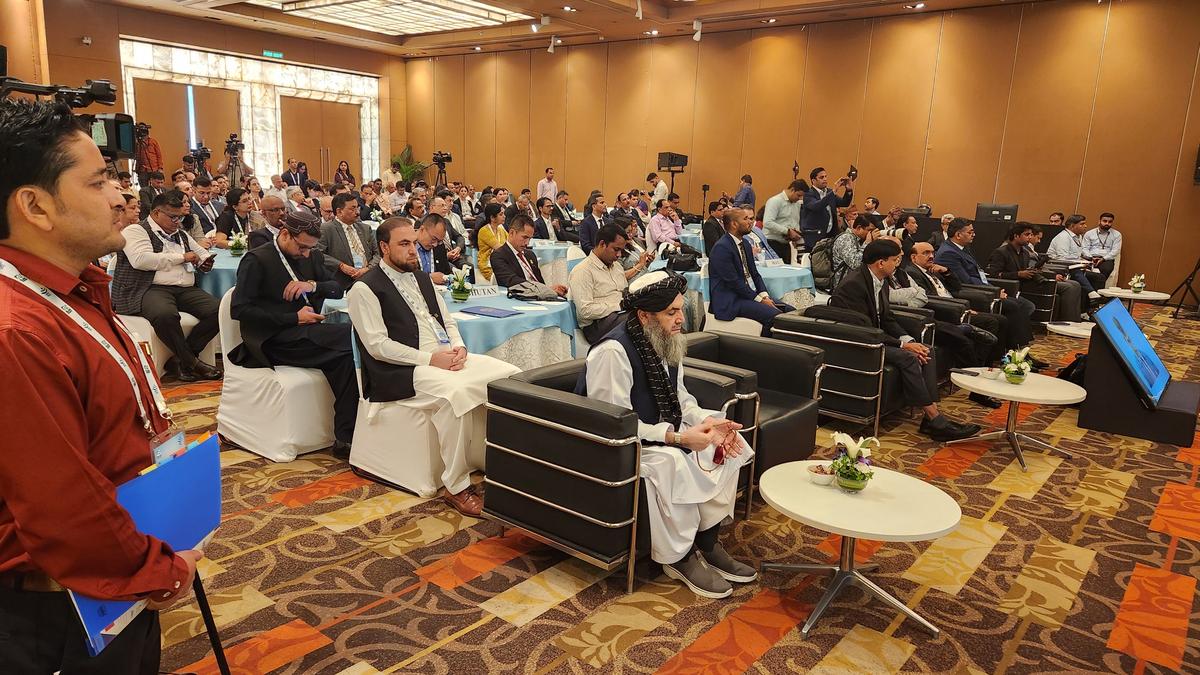
India hosts south Asian nations, including Afghanistan, for telecom regulation event
The Hindu
TRAI hosts South Asian nations in New Delhi for multilateral event, discussing telecom challenges and cooperation in region.
The Telecom Regulatory Authority of India hosted South Asian nations for a multilateral event in New Delhi. Notably, the South Asian Telecommunication Regulators’ Council, the three-day event organised by the Asia Pacific Telecommunity (APT), includes a delegation from Taliban-controlled Afghanistan, a significant inclusion.
The Afghan officials present at the annual council declined to answer questions, but provided their names: Saed Baraat Shah Agha Nadeem, the chairman of the Afghanistan Telecom Regulatory Authority (ATRA), Sebghatullah Andar, the Telecommunication Monitoring and Control Director, and Rohullah Raihan, a protocol director. There was also a Pakistani delegation; the country’s delegation was led by Khawar Siddique Khokhar, Member (Compliance & Enforcement) at the Pakistan Telecommunication Authority (PTA).
At the plenary session, TRAI chairman Anil Kumar Lahoti was voted the chair of SATRC for the coming year, a customary appointment as India hosted this year’s session. “It is important that Information and Communication Technologies (ICT) policies are increasingly related to development objectives,” Mr. Lahoti said in remarks after being voted chair. He brought up spam as an issue on which countries would have to collaborate to address. “This is not a political forum, this is a sectoral gathering,” he told The Hindu when asked about the significance of the countries in attendance. “We are fortunate that all the eight member countries of the SATRC are present here.“
“We need to work harder and more patiently than ever to build our region,” Mr. Nadeem of ATRA said at his remarks in the plenary session, in which he also highlighted the importance of regional and sub-regional cooperation in telecommunications, and thanked India for its hospitality. Iran also participated with a representative present; however, the gathering was addressed by the country virtually by Alireza Darvishi, an official at the country’s Communications Regulatory Authority.
Last week, J.P. Singh, joint secretary at the Ministry of External Affairs’ Pakistan-Afghanistan-Iran division met with Afghan officials and discussed issues like Afghan businesses accessing the Chabahar Port, and humanitarian assistance. Afghan state-associated media reported this week that the country’s consulate would begin issuing passports to citizens in India.
“South Asia faces unique challenges regarding access and inclusion, cybersecurity, spectrum management, smart cities and societies, e-waste and the regulation of social media and OTT platforms, etc,” Mr. Khokhar of Pakistan said in his remarks.
The other countries who participated were Sri Lanka, Bhutan, the Maldives and Nepal. “Post-pandemic, online platforms have taken the forefront of teaching and learning,” Bhutan InfoComm and Media Authority Director Jigme Wangdi said. “Therefore, demand for fixed broadband, ADSL, leased line, has increased, and our telecom companies are struggling to meet the demand. The universal service funds are depleting, and we still have villages to cover with usable internet connectivity. With 5G we’re in a better position to deal with the increased demand of leased lines and home broadband…”

A delegation from Andhra Pradesh, comprising Ministers and officials, is set to visit Karnataka to examine the successful implementation of the Shakti scheme, which provides free bus travel for women on non-premium State-run buses. The Andhra Pradesh government is also considering launching a similar scheme.










